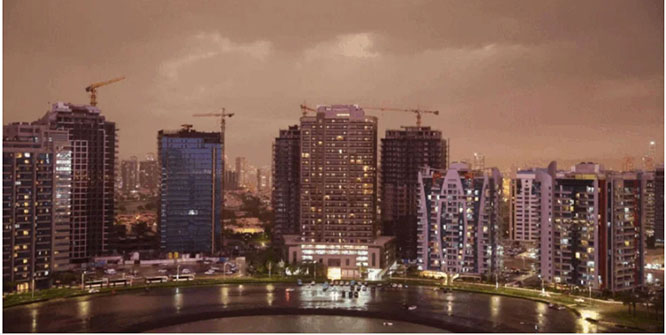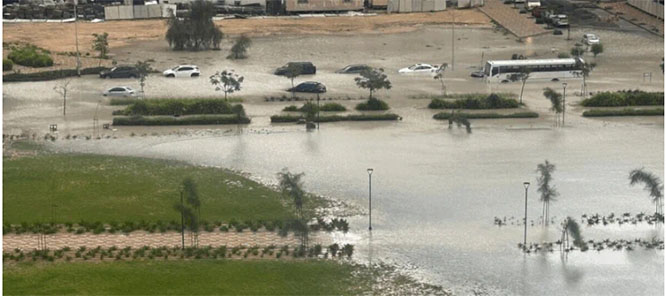Bengaluru, Aug 2: Bengaluru will host the 10th AASF Asian Age Group Championships 2019 for the first time, giving the Indian swimming enthusiasts an opportunity to witness the largest aquatic event in the continent.
The nine-day sporting extravaganza, scheduled to be held between September 24 and October 2, is set to have over 40 countries and more than 1200 participants competing for top honours in four different aquatic disciplines, including swimming, diving, water polo, and the visually-mesmerizing artistic swimming.
The event venues will be spread across the city with swimming to be held at Padukone-Dravid Centre for Sports Excellence from September 24 to 27, Water Polo to take place at the Sports Authority of India, Kengeri from September 24 to 30.
Diving will be held at the Sports Authority of India, Kengeri from September 29 to October 2 and Artistic swimming will be conducted at the Kensington Swimming Pool, Ulsoor from September 29 to October 2.
"It is a true honour and pride for us to host the 10th AASF Asian Age Group Championships 2019 in Bengaluru, a city which has seen scores of international swimmers being produced under the Karnataka Swimming Association's umbrella. We are geared up to ensure the event is a mega success and that every participant will return home with memories they would cherish for a lifetime," President of the Organising Committee (AAGC 2019), IPS (Rtd), Gopal B Hosur said.
He further said that the support provided by the Government of Karnataka has ensured the mega event is conducted on-par with top world-class aquatic events.
"I must extend my sincere gratitude to the Government of Karnataka and the Department of Youth Services and Sports who have come on board as the main sponsor for this event. Their support has come as a shot in the arm in our endeavour to ensure the event is conducted on-par with other top nations," Hosur said.
The event will see a strong contingent from India, including the likes of Olympians Virdhawal Khade, Sajan Prakash and Shivani Kataria, backstroke sensation Srihari Nataraj, sprinter Anshul Kothari, national record holder in breaststroke Likith SP, freestyle specialist Khushagra Rawat take part in the open category while Kenisha Gupta, Kushi Dinesh, Suvana C Baskar, Tanish George Mathew, Sanjay CJ, and Riddhima Virendra among others promise to create headlines in the age-group categories.
The 10th AASF Asian Age Group Championships will also witness top swimmers from Japan, China, North Korea, South Korea, Hong Kong, Malaysia, and Singapore.
"This is the largest Aquatic Championships in Asia as it's not only for open categories (18 years and above) like the Asian Games and Asian Championships but will also include participants from Age Groups I (15-17 years) and II (14 years and below)," Swimming Federation of India, Secretary-General, Monal Chokshi said.
"The last time India hosted this event was in 1999 and I am sure this Championships coming to India will spur the popularity of the sport with aspiring swimmers getting to watch their icons live in action. Traditionally, Indian swimmers have always done well at this competition and I am confident they will make use of the home advantage this time to surpass the previous edition's medal tally,"
With the event recognised by FINA as an Olympic Qualifier, Indian swimmers will enjoy home advantage as they aim for A Qualification Mark for the 2020 Tokyo Olympics. Bengaluru is the most preferred city for Olympians and top Indian swimmers to train and excel.
Meanwhile, Vice President of Indian Olympic Association and veteran sports administrator Virendra Nanavati said, "This is a very crucial period for the Indian swimmers as some of them are vying for the 'A' Qualification mark for the 2020 Tokyo Olympics."
"At the recent FINA World Championships we had good participation with six swimmers, four Open Water swimmers and one diver qualifying to take part and some of them even improved the best Indian Performance record. Good show here at the 10th AASF Asian Age Group Championships Bengaluru 2019 will put them in good stead to make the qualification mark for the forthcoming Olympics," Nanavati added.
In the previous edition held in Uzbekistan in 2017, India won a total of 40 medals in swimming with five gold, 13 silver, and 22 bronze Medals. While in diving, India won three gold, two silver, and three bronze medals.
Srihari Nataraj, the national record holder in 50, 100 and 200m backstroke said it is a great opportunity for Indian swimmers to create match-winning performances and get more support in the sport.
"It is very exciting that the 10th AASF Asian Age Group Championships 2019 is happening in my hometown Bengaluru. This is a great opportunity for Indian swimmers to create winning performances and garner more support for swimming in the country. With nearly 45 days to go for the event, I am looking forward to being in my best form and I will be vying for Gold in all my events and make use of the home advantage."
Nataraj further said he is confident of achieving the A Qualification mark. The backstroke player also highlighted that his performance improved at the recent World Championships.
"At the recent FINA World Championships, I further improved my personal best in 50m (25.83), 200m (2:02.08) backstroke slashing my own National Record in these events and I clocked 55.55 in the 100m backstroke."
"Though I could not achieve my goal of securing the A Qualification Mark for the 2020 Tokyo Olympics, I believe there are quite a few opportunities coming up and I am confident of achieving the A Qualification mark. I was one of the youngest swimmers in my event at the FINA World Championships, so in that sense, I am happy with my performance," Nataraj added.










Comments
Add new comment